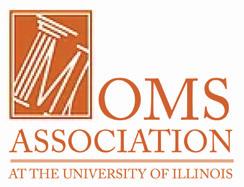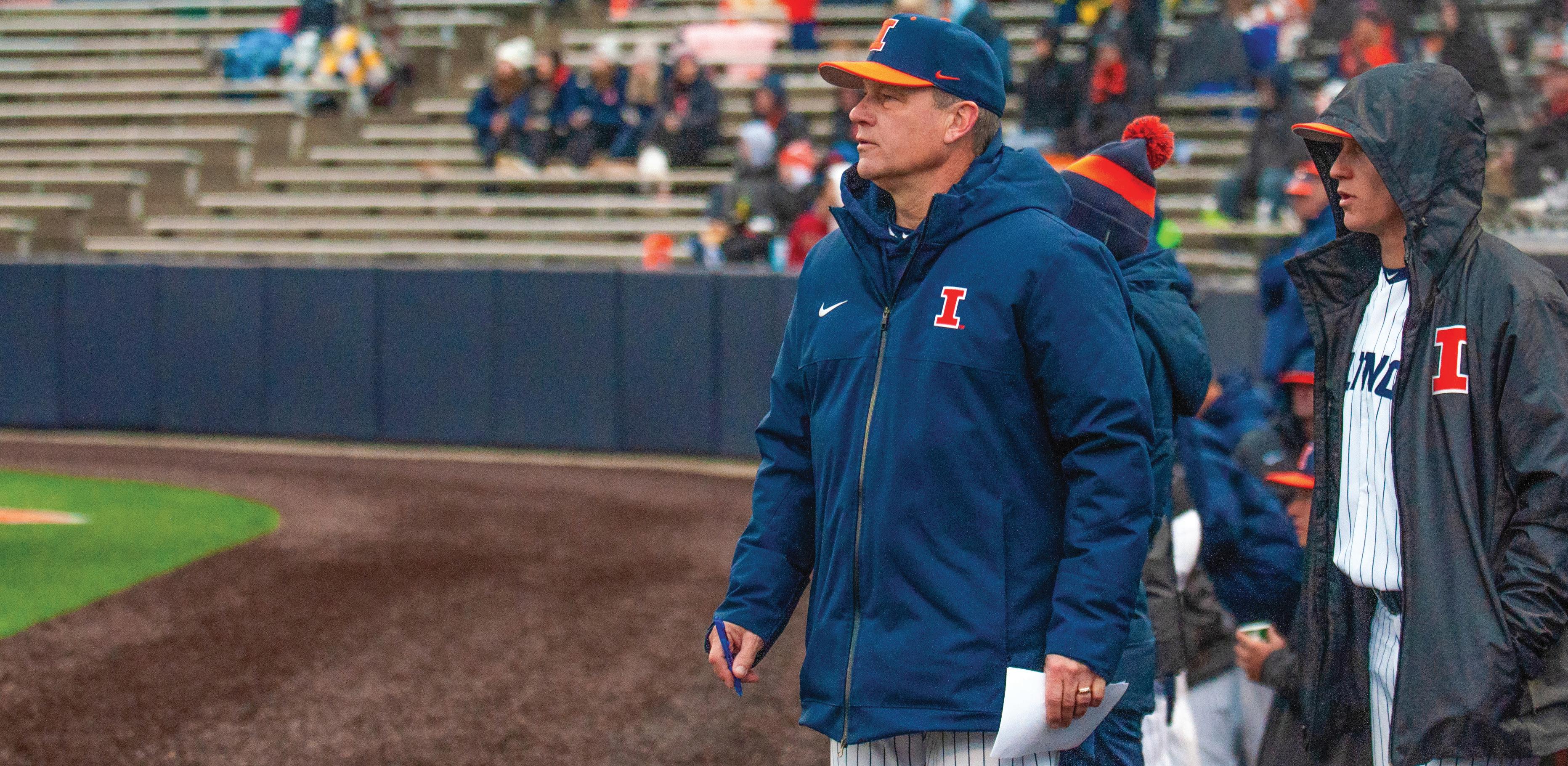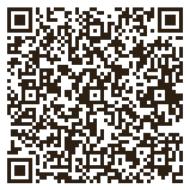






The Daily Illini is located in the basement of the University YMCA at 1001 S. Wright St., Champaign, IL 61820. Our office hours are 9 a.m. to 5 p.m. Monday - Friday.
General phone numbers
Front Desk: (217) 337-8300

Advertising: (217) 337-8382
Newsroom: (217) 337-8345
Newsroom contacts
Online: If you have a question about dailyillini.com or The Daily Illini’s social media outlets, please email our editor at online@dailyillini.com.
Employment: If you would like to work for the newspaper’s editorial department, please fill out our online form at dailyillini.com.
Calendar: If you want to submit events for publication in print and online, visit dailyillini.com.

Letters to the editor: Letters are limited to 300 words. Contributions must include the author’s name, address and phone number. University students must include their year in school and college.
Corrections: When we make a mistake, we will correct it in this place. We strive for accuracy, so if you see an error, please contact Editor-in-Chief Lika Lezhava at (217) 337-8365 or email editor@dailyillini.com.
Daily Illini is the independent student newspaper at the University of Illinois at Urbana-Champaign. The newspaper is published by the Illini Media Co. The Daily Illini does not necessarily represent, in whole or in part, the views of the University of Illinois administration, faculty or students.
Media Co. and/or The Daily Illini articles, photos and graphics are the property of Illini Media and may not be reproduced or published without written permission from the publisher.
A recent poll by the Trevor Project, a nonprofit organization that aims to reduce suicide rates among LGBTQ+ youth, reported that 86% of transgender and nonbinary youth experience worsened mental health resulting from political discussion surrounding transgender issues.
In response to anti-LGBTQ+ messaging in the media and the resulting dangers being faced by the queer community, advocacy groups across the country are promoting the interests of affected youth through programming, social media outreach and events in their communities.
Nicole Frydman is the director of operations at Uniting Pride of Champaign County, a local nonprofit organization that provides LGBTQ+ support, advocacy and education.
According to Frydman, LGBTQ+ youth are in greater danger now than they have been in recent years.
“Queer and trans youth are a target in a way they never have been before in some very scary ways,” Frydman said.
Frydman emphasized that youth voices are an integral part of advocacy for LGBTQ+ issues.
“It’s one thing to, as adults, be speaking about these things … but it’s another thing to allow young people to lead and to have a voice in this
conversation,” Frydman said.
According to research conducted by the Trevor Project, some of those most affected by political discussions targeting LGBTQ+ issues are young people living in rural communities.
Aydin Tariq, sophomore at Mattoon High School, said that being a queer student in Mattoon, a rural town with a population of about 17,000, can be trying.
“Students living in these rural communities are feeling a lack of representation by the people who lead them and they’re feeling very isolated and alienated,” Tariq said.
“It is our job to help the leaders and the people making decisions about our schools,” Tariq said. “Passion has the ability to change minds, laws and the future of this country.”
Tariq said that because their peers will soon have the power to influence many social issues, it is crucial for young people to stay informed and engaged.
“The future generation — they’re the next group of critical thinkers and leaders destined to take positions in power and leadership,” Tariq said. “We’re the ones that are going into the workforce and becoming voters … It’s our responsibility to take (on) a lot of the issues that are plaguing the world today.”
In Tariq’s opinion, youth have not been sufficiently included in impor -
tant discussions in the past, but social media has given many young people a necessary platform.
“For so long, the youth voice has been sort of silenced and quiet because we haven’t had the opportunities to speak out,” Tariq said.
Though social media provides the opportunity to speak out on important issues, it has also amplified existing voices with hateful intentions.
According to research published in 2022 by the Human Rights Campaign, hateful “grooming” rhetoric against the LGBTQ+ community on social media has increased by 400% since the passing of Florida’s recently controversial “Don’t Say Gay” bill.
Such comments have not only come from individual users of social media — elected officials have also promoted similar anti-LGBTQ+ messaging to their constituents.
Tariq said that in a conservative town like Mattoon, people are less likely to be exposed to diverse perspectives.
“When we look at students — specifically queer students in Mattoon — they’re dealing with a student body that looks at them with animosity,” Tariq said.
Tariq said that representation in the media is important because it creates a sense of belonging and combats discrimination against the LGBTQ+ community.
“Our media needs to accurately
represent society as a whole,” Tariq said.
Tariq has made LGBTQ+ advocacy a personal priority throughout their life. Most recently, as part of the PBS NewsHour Student Reporting Labs Advisory Team, Tariq has engaged with queer students from diverse communities across the country.
Tariq is also a member of Mattoon High School’s Spectrum Alliance, an organization meant to help queeridentifying peers feel supported in a political climate that normally alienates them.
Tariq met Frydman at a Uniting Pride event hosted at a local summer camp. Afterwards, Tariq reached out to Frydman in the hopes of collaborating with Uniting Pride on a Transgender Day of Visibility rally.
According to Frydman, the Board’s response toward the rally was overwhelmingly positive.
The rally, scheduled for Friday at the McKinley Memorial Presbyterian Church, was postponed due to inclement weather, but the organizers still believe that it is “incredibly important” for the local LGBTQ+ community.
“We want to do everything we can to make space, not just for this local teenager, but for all the youth in our community,” Frydman said.
lisamc3@dailyillini.com
jessiew4@dailyillini.com
On March 17, the Department of Justice filed an amicus brief, weighing in on Lange v. Houston County in Houston County, Georgia, in which the plaintiff was denied treatment for gender dysmorphia under her health care plan.
Amicus briefs are commonly filed in cases that broadly appeal to the public interest, such as civil rights, education and law enforcement cases.
In October of 2020, Anna Lange, a former sheriff’s deputy, filed a suit against Houston County, Georgia, and Sheriff Cullen Talton, alleging “that the exclusion of coverage in the
County’s health insurance plan for gender-affirming surgery and related medication violates Title VII ‘by intentionally providing lesser terms of compensation to employees.’”
Lange was denied “medically necessary” care based on an exclusion in her healthcare plan for “services and supplies for a sex change.”
Anthem Blue Cross Blue Shield, the Houston County healthcare administrator, recommended the county amend this aspect of the plan in 2016 after a new federal nondiscrimination policy. Houston County refused to make the change and has instead spent upwards of $1 million dollars battling Lange in court.
The DOJ wrote in their brief that “the plan would have covered such
care, however, if it were provided for some other medically necessary purpose.”
Recent years have seen a trend in state legislation that denies protections for transgender health care, including Arkansas and Mississippi which have laws that “explicitly permit insurers to refuse to cover gender-affirming care.”
Still, David Brown of the Transgender Legal Defense and Education Fund said that among Fortune 500 companies and state employees, “only a small minority of each includes the kind of blanket refusals to cover transgender care we’re challenging in Houston County, Georgia.”
Brown said that this is the case due to “courts have increasingly made it
clear that it’s illegal.”
A federal court in Baltimore ruled in favor of a transgender man with a similar case earlier this year.
In Lange v. Houston, the DOJ stated that they are supporting Lange and are “urging affirmance on the issues addressed,” saying denying her coverage is in violation of Title VII of the Civil Rights Act.
Ultimately, the DOJ’s amicus brief cannot alone make the decision on Lange’s case, as it serves to inform the court of the executive branch’s position on the issue.
Nevertheless, the court will have to weigh the DOJ’s stance in supporting Lange.


The Gender & Sexuality Resource Center organizes public events throughout the school year and is meant to bring the LGBTQ+ community together on campus. For its 30th anniversary, the GSRC plans to host a gala in the fall.
“There’s a lot of history to celebrate,” said Alex Rosado Torres, assistant director of the GSRC. “A lot of change that has been undergoing, not only on this campus but in the country connected to LGBTQIA+ issues, and so we’re excited to showcase that.”
He said the presence of LGBTQ+ students have been around longer than the GSRC.
“Our history honestly extends beyond the 30 years,” Torres said. “We have been able to trace at least 50 years of LGBTQIA+ students organizing and mobilizing on this campus.”
Today, Torres said student organizations continue to provide LGBTQ+ students with opportunities to grow and express themselves.
“We wanna make sure that we are creating programs and opportunities on campus for our queer community as well as for everyone else,” Torres said. “We want people to learn about the queer community.”
He said social media was the best way for students to learn more about their events. There is also a calendar with the GSRC’s programming on the Student Affairs webpage.
Every first and third Monday of the month, Torres said the GSRC provides a free lunch for anyone that wants to come in and learn more about LGBTQ+ topics.
“If there are people who want to learn more or want to ally themselves with the


community, you are more than welcome to our space as well,” Torres said. “We really want to work with all of our campus community and understand that this is our mission, a shared mission.”
The Transgender Day of Visibility is crucial to this mission, said Sreelakshmi Suresh, founder and president of Forging Unity Solidarity and Equity for QTPOC.
“It’s really important to celebrate and to recognize how many transgender students we have here at the University, but also just around the country,” Suresh said.
According to a Gallup poll published in February, about 19.7% of Generation Z in the US identified as LGBTQ+, compared to 11.2% of millennials and 3.3% of Generation X.
Suresh said they expect that number to grow.
“That’s why the Trans Day of Visibility is important, to show that we are here,” Suresh said. “Despite current laws, legislation and attacks to try to prevent people from seeing us, understanding us.”
The current political climate in the U.S. threatens transgender people, Suresh said.
“A lot of people are afraid to be trans,” Suresh said. “They’re afraid to be queer, they’re afraid to be themselves in whatever non-normative sense.”
LGBTQ+ students need a safe space
where they know that they are not alone, Suresh said. When these basic needs are not met, students might not feel fulfilled as people, which will lead to academic trouble.
In this situation, Suresh said students should speak up when they can, because there are people who will listen.
“The GSRC is here, and we are so willing, able and ready to make sure that (LGBTQ+ students’) experience here is equitable and not just equal,” Suresh said.
lmsalas2@dailyillini.com fedczuk2@dailyillini.com

 JORDAN MONTGOMERY THE DAILY ILLINI
JORDAN MONTGOMERY THE DAILY ILLINI















At a time when the United States is filled with high tensions due to rekindled conversations surrounding legislation and human rights, the transgender community continues to celebrate their identity. The Transgender Day of Visibility is celebrated March 31 as a day to acknowledge and celebrate the community.
Due to a society structured deeply in binaries and relying heavily on gender-conforming arrangements, it can be hard for transgender people to discover their most authentic selves.
Syd Mark, junior in LAS, said the period of isolation during quarantine allowed him to delve deeper into the person he wanted to become.
“I didn’t have a bunch of cisgendered people watching me and I didn’t feel their gaze on me,” Mark said. “I found out, through being isolated, that it was really affecting me. I really gained a more confident version of myself that I have been sticking with today.

“Regardless of the fact that now we’re back in person and I have more cisgendered people around me, I have more confidence walking into a space and taking up space for myself,” Mark said.
Experimentation was important, according to Mark. He began to “mess around” with gender and encouraged people to do the same.
Gender is a social construct, not to be defined the same as sex. Transgender people acknowledge the concept of gender controlling most aspects of society and it can be hard for individuals to get to know themselves in a real sense.
Ellis Mack, freshman in LAS, realized how much society forced gender binary onto them when they had the opportunity to connect with other transgender people.
“I realized (societal gender norms) summed up a lot of my discomfort and I realized, ‘Oh the reason I hate all of this and all of these aspects of


my identity society has pushed on me is because it’s not who I am,’” Mack said. “It’s not something I need to acclimate to because it’s not who I am.”
The day of visibility can be a time where the community is able to reflect on their journey and allow people to learn who do not identify as transgender or gender nonconforming.
The transgender community makes up a small percentage of the total U.S. population and is estimated to be 1.4%, according to a study from June 2022 by the Williams Institute through University of California at Berkeley.

Transgender people feel that it can be hard to see representation in the media that is accurate and optimistic, which leads to false narratives of transgender people being spread due to ignorance.
Mack said the day is used for others to turn to transgender people and ask about their needs.
He feels that the day has the power to bring the conversation back to the community to focus on positive sto -
ries about transgender people.
“The visibility we’ve been getting is very demonized, punitive and disrespectful,” Mack said. “For me, I’m focusing on why trans people and their bodies are so sacred and special, what we are consistently bringing to the conversation and to the media. I’m just having fun with myself today and appreciating how I show up for my loved ones. Why being loved by a trans person is so awesome.”
Along with the potential of creating more understanding during the day of visibility, Mack said it also has the power to allow people to celebrate a part of themselves that had been previously shunned.
“This day is important to me in particular because the community I grew up in was not very supportive of trans people,” Mack said. “For me, the day of visibility is like, ‘It doesn’t have to be that way.’”
Mack stated that they did not grow up in an environment that was highly accepting of the transgender community, but they were able to find
themself when they were connected to resources that supported their gender exploration.
“Even if you don’t have anyone within your immediate vicinity that can help you understand or just be there for you, that doesn’t mean that there aren’t people out there who are going to be able to listen to what you are saying,” Mack said. “I’d really say get involved, do your research and reach out to people. People can help you and people can empathize and take you out of a space that feels really uncomfortable.”
Mack emphasized there are many online forums to connect with people in the LGBTQ+ community that are able to help individuals struggling.
The journey of discovering an individual’s gender identity and orientation can be daunting, according to transgender people, but it is helpful to find a safe space where someone can speak to others about the process.
The University has over 10 different groups devoted to helping students who identify as part of the LGBTQ+ community.

These groups work to provide safe spaces for students discovering themselves or students who want to show allyship with the community.
However, transgender issues and topics do not disappear after the day of visibility. Mack said actions to help the community can be done on a dayto-day basis that could provide safer spaces for individuals who need them.
Mack said encouraging people to use pronouns on social media, asking professors to utilize pronouns in class, correcting transphobic language and correcting someone if they have misgendered a person can all be integral to creating positive reform wherever someone is.
Beyond this day, Mack says to promote empathy and kindness to not only the transgender community, but the LGBTQ+ community as a whole.
Both Mack and Mark said they want people to tell the transgender individuals in their lives that they are valued, loved and important not just on the day of visibility, but frequently in these times of hardship.
“Keep remaining rooted in yourself because who you are and what you bring to the table is so unique, awesome and special,” Mark said. “Because we live in such a binary structured world, people just don’t understand the type of rich and beautiful practice in life that trans people are bringing. What you are living everyday is not deviant, it’s stunning.”
The United States is undergoing a wave of homophobia as Republican lawmakers push anti-transgender legislation all across the country.
These bills come in various forms, ranging from restrictions on health care to self-expression and free speech. The underlying commonality is that they are all attacks on the transgender community and, by extension, the LGBTQ+ community as a whole.
During the discussion of this editorial, we wanted to highlight the privilege that we have as students at the University of Illinois — a progressive university in a progressive state. This university is, in many ways, a safe space for the LGBTQ+ community.
To that end, we will be amplifying the voices of the LGBTQ+ community at other universities who feel targeted by this legislation.
Recently, the Republican Party has focused its attention on the banning of drag shows alongside attacks on health care rights.
At least 11 states — Alabama, Arizona, Arkansas, Florida, Georgia, Iowa,
Kentucky, Mississippi, South Dakota, Tennessee and Utah — have passed laws or policies restricting gender-affirming care for minors.
School newspapers at the Universities of Texas, Florida, Arkansas, Iowa, Mississippi and South Dakota have reported on how the LGBTQ+ community at these schools feel targeted and unsafe. We encourage you to read about the struggles of our colleagues who live in states whose state legislatures are pushing hostile legislation.
In Florida, there exists legislation that makes it more difficult for transgender adults to receive gender-affirming surgery by blocking Medicaid from covering it.
Transgender students at the University of Florida experience difficulties in getting the care they need due to this lack of coverage. This legislation was met with protest from UF students. Students at Ole Miss and the University of Utah organized similar protests.
Another kind of anti-transgender legislation being pushed would allow or require teachers to use students’ deadnames in school. Additionally, legislation is being pushed to allow or require
teachers to out students to their parents of their child’s gender identity. Trans children will die if their access to healthcare is blocked.
Gender-affirming care saves lives, and not all gender-affirming care is permanent. A study published in the Journal of Interpersonal Violence found that 86% of transgender youth have had suicidal thoughts, and 56% of youth have undergone a previous suicide attempt. School belonging is a major factor in trans youth suicides, the study said. Trans students who felt safer and more accepted in school were more likely to report good mental health.
In the wake of the Nashville shooting, some used the shooter’s alleged transgender identity as a way of spreading anti-trans rhetoric, claiming testosterone treatment causes aggression in trans men. These baseless claims are just attempts to dehumanize trans people and delegitimize their struggles. Ultimately, it’s a matter of respect — this legislation is infringing on trans people’s right to exist and express themselves freely.
The school environment is already so hostile to students who do not feel as though they fit in. One can imagine that it is especially difficult for trans youth to navigate the stresses of adolescence while being the victim of a nationwide witch hunt.
Schools need to be safe spaces for trans people. However, transgender representation in schools has been suppressed.
High schools and universities should be spaces that provide an inclusive and accepting environment for trans students, especially when students need an escape from toxic households. The University has many spaces for the LGBTQ+ community. In particular, the Queer Campus Coalition is a great starting point to find RSOs for those who identify as queer and want to get involved in the LGBTQ+ community on campus.
It’s a unique and special privilege to grow into adulthood surrounded by fellow young people. It’s equally special that we attend a university in Illinois — a blue state that has generally stood for trans rights.
The University isn’t totally safe for trans people — bigotry and hate exist everywhere.
But in comparison to college students in states where the rights of the LGBTQ+ are being taken away, the University has acted as a bastion of safety. We hope that it continues to be a space for LGBTQ+ students despite the onset of hostile legislation targeting the LGBTQ+ community.

“But I’m a Cheerleader,” released in 1999, has recently been referred to as a “cult classic.”
In 1999, Lions Gate Films released “But I’m a Cheerleader,” a romantic comedy movie centering around a teenage cheerleader who is sent to gay conversion therapy by her friends and family.
The film starred actress Natasha Lyonne from “Orange is the New Black” as Megan, the protagonist cheerleader, and “RuPaul’s Drag Race” star RuPaul as conversion therapist Mike.
Despite the talented cast and groundbreaking subject matter, the movie received primarily negative reviews upon its release.
A 1999 article from Variety said the movie was “a shallow, only mildly entertaining satire” that could only find “limited crossover appeal beyond the immediate target audience of young, undiscriminating gay viewers.”
“But I’m a Cheerleader” currently sits at 42% on Rotten Tomatoes, and an only slightly more positive 6.7/10 on IMDB.
But upon scrolling through the two websites, a trend emerges: the more recent the review, the more positive the rating.
In 2000, Urbana native and film critic Roger Ebert published his review and rating of three stars.
“‘But I’m a Cheerleader’ is not a great, breakout comedy, but more the kind of movie that might eventually become a regular on the midnight cult circuit,” Ebert said.

Over 20 years later, film site Movies on Weekends reflected back on Ebert’s review of the Movie.
“Roger Ebert was right; the movie would eventually become a midnight
hit,” critic Sarah Cook said.
Cook said the majority of film critics most likely identified as straight, and they were not accustomed to seeing queer relationships shown on camera.
Therefore, it’s no wonder that films like “But I’m a Cheerleader” were given somewhat mixed, if not much more negative reviews.
However, television series and films produced within the past year feature much broader representation, especially within the LGBTQ+ community. Some of these include comedy-drama series “Heartstopper” and romantic drama film “My Policeman.”
Both of these works received wide critical acclaim, while still gaining reasonable criticism from reviewers. The critics of today are providing support for LGBTQ+ films that was not seen back in 1999.
Jamie Babbit, director of “But I’m a Cheerleader,” said in a 2020 interview with Variety that she “wanted to make a gay ‘Clueless.’”
“Clueless,” a huge box office hit, has been recognized as one of the best teen films of all time. The only LGBTQ+ representation in the film is found inside character Christian, who plays strongly into gay male stereotypes.
“But I’m a Cheerleader” defies traditional lesbian stereotypes by depicting Megan as a normal cheerleader.
The film’s full purpose can finally be respected now that the world is ready to receive it. As critics and legal practices within the United States have finally caught up, the film is now referred to as “a modern cult classic.”
maaiken2@dailyillini.com
**This review contains spoilers**
“The Last of Us” is a game published in 2013 by Sony Computer Entertainment, and it has phenomenal representation of queer characters.
Recently, the game was adapted into an HBO Max show. “Narcos” actor Pedro Pascal plays Joel Miller and “Game of Thrones” actor Bella Ramsey plays Ellie Williams.
In this post-apocalyptic world, a fungus called “cordyceps” infects humans and makes them mindless mosters. After being bit by an infected human, Ellie discovers she is immune to the fungus.
Soon after, Ellie is captured in Boston by a rebel group called the Fireflies, who become aware of her immunity and give smuggler Joel the task of taking her to doctors in Utah who can study her to hopefully find a cure.
In episode seven of the show, viewers meet Riley, someone Ellie used to know. Riley, played by “Euphoria” actress Storm Reid, has been missing from the quarantine zone for almost a month because she joined the Fireflies.
After returning to the quarantine zone, Riley takes Ellie to an abandoned mall and the two of them have a romantic night and they share a kiss.
Ellie asks Riley to stay in Boston, and she agrees to stay — though a few moments later an infected man attacks them and bites both Riley and Ellie.
Ellie later admits to Joel that Riley became infected and was the first person that Ellie ever killed.
Another queer love storyline is introduced in the TV adaption of “The Last of Us” that wasn’t heavily featured in the video game.
In episode three, viewers are introduced to Bill, played by University alum and “Parks and Recreation” star Nick Offerman, and Frank, played by actor Murray Bartlett. The episode takes viewers through how they met, fell in love and eventually died together.
Bill is a doomsday prepper and the sole inhabitant of an otherwise abandoned town. One day, a trespasser named Frank gets caught in one of Bill’s traps.
Despite all his previous trepidations and isolationist mindsets when it came to helping others, Bill takes Frank in. He tells Frank that he can only stay for a
meal, though after they eat, they share a kiss and Frank moves in with Bill.
As they get older, Frank develops an unnamed disease that creates an undesirable quality of life. Frank asks Bill to help him end his life by slipping crushed sleeping pills into his glass of wine.
Bill reluctantly agrees, but when it comes time to drink the wine, Frank realizes that Bill has put the pills in his own glass of wine as well. Moments later, they walk into their bedroom to fall asleep together for one last time. It’s a hard-hitting and devastatingly romantic ending to their storyline.
Their story was briefly mentioned in the video game, but Bill had only called Frank a partner. They had a fight and Frank left him, but was bitten and later ended his own life.
Their relationship was not nearly as emotional or satisfying in the video games as it was in the television series. It was refreshing to see a more in-depth adaptation of their relationship, especially because queer stories between older adults are not often told in media.
In “The Last of Us Part II” video game, Ellie is given another chance at romance with a character named Dina, though it does not work out.
To many, the LGBTQ+ representation in “The Last of Us” is refreshing, though not everyone found it to be that way.
When the episode aired, many people were upset online, arguing that a gay love storyline was too much of a departure from the apocalypse plot that viewers were expecting. Ramsey, who is genderfluid and therefore a part of the LGBTQ+ community, voiced their thoughts in an interview with Sky News, calling the backlash “bizarre.”
“It’s in the game, like the Ellie and Riley stories (are) in the game and Bill and Frank is hinted at in the game,” Ramsey said. “I think it’s really cool. Just because of the apocalypse doesn’t mean that gay people don’t exist.”
It’s exciting to see such heavy representation in both the video game and the television series. It shows exactly how normal it is for queer people to exist even in the most extreme of cases, like a post-apocalyptic world. And it reminds us that being queer in any environment, whether it be on a college campus or in an apocalypse, is valid and normal and should be accepted.
PHOTO COURTESY OF IMDB‘But I’m a Cheerleader’











































































































































Thirty-three years or 12,045 days — no matter how people choose to describe it, that’s a long time. If you ask any of the players on the Illini roster what they were doing in 1990, they’d all say the same thing: “I wasn’t even born yet.”
For head coach Dan Hartleb, he would say he was getting ready for his first season on the Illini coaching staff. Fifteen years later, he was ready for his first season as head coach of Illinois baseball.

“I was a graduate assistant for Itch Jones at Southern Illinois,” Hartleb said. “He got the job up here, and I was fortunate that he asked me to be a part of his staff.”
Itch Jones is the third winningest coach in Illinois program history. Without him, Hartleb believes he “wouldn’t be where (he is) now.”
“I was young and very inexperienced,” Hartleb said. “I was 24 at the time and he gave me that opportunity. I’m so very blessed with the opportunity to be in Division I baseball for the start of my career.”
Hartleb took the Illini reins from Jones in 2005 after the former coach retired. Hartleb surpassed his mentor in 2021 with his 475th win, and win No. 500 came in 2022.
“Itch really took care of me,” Hartleb said. “Not only to hire me, but then he retired and told me I have the opportunity to be the head coach here (at Illinois).”
In his 18th season as the head coach of the Illini, Hartleb has seen plenty. But now, he seeks history. Dan Hartleb is looking for his 519th win as Illinois’ head coach, which would be the all-time record for wins in program history. At 518 wins, Hartleb is as close as possible.
“It will be an honor when we get
there,” Hartleb said. “I’ve been fortunate to be here for a long time.”
Under Hartleb, the Illini have experienced success that the program had never seen before. Illinois has appeared in four NCAA tournaments during his tenure. The Illini have won nearly 60% of their games under Hartleb.
Illinois had its best season in history in 2015 under Hartleb’s leadership. The Illini won 50 games overall, going 21-1 in conference play and making it to the NCAA Super Regional. Hartleb spoke about his thoughts during his beginnings.
“I don’t think you ever go into a job thinking it’s forever,” Hartleb said. “Back at that time, young and dumb basically, things have just worked in my favor.”
Hartleb repeatedly spoke of the impact that Jones had on him. The opportunities Hartleb was given by Jones stick with him to this day.
“Being able to play for him as a player,” Hartleb said. “The opportunity he gave me to be a grad assistant, he just took care of me my entire career. Without him, I would not be in this position.”
Hartleb’s teams have only finished with a record below .500 once in the 17 full seasons he’s coached the Illini. The Illini will look to get him that recordbreaking win, and once they do, it will be a moment that’s been in the making for well over three decades for the legendary coach.
But to Hartleb, it’s not just about him, it’s about those around him.
“I’ve been very fortunate that we’ve had great players and great coaches,” Hartleb said. “It’s about everybody. I’m fortunate to be in a position where you get credit for stuff, but there are so many people involved.”
TH APR 6
Krannert Uncorked // Marquee
TH APR 6
Illinois Wind Symphony // School of Music Ledisi // Marquee
SA APR 8
Sinfonia da Camera Season Finale: Mahler’s Fourth Symphony // Sinfonia da Camera
TH APR 13
Krannert Uncorked with the Afro-Caribbean Jazz Collective // Marquee
TH APR 13 – SA APR 15
Krannert Center at the Virginia: Lyric Theatre @ Illinois Presents City of Angels // Lyric Theatre @ Illinois
FR APR 14 – SA APR 15
Mark Morris Dance Group and Music Ensemble: The Look of Love // Marquee
SA APR 15
UI Women’s Glee Club Annual Mom’s Weekend Concert // School of Music
UI Black Chorus Annual Mom’s Day Concert // School of Music
SA APR 15 – SA APR 22
Coriolanus, by William Shakespeare // Illinois Theatre
TU APR 18
Rochelle Sennet, piano // School of Music
WE APR 19
Push4Art // Krannert Center Student Association
CultureTalk at Spurlock Museum | Nikky Finney and Ruth Nicole Brown // Marquee
TH APR 20
Krannert Uncorked // Marquee
FR APR 21
Dance for People with Parkinson’s // Marquee
$10
UI Wind Orchestra and Hindsley Symphonic Band // School of Music
SA APR 22
Champaign-Urbana Symphony Orchestra: A Festival of Rhythm // Champaign-Urbana Symphony Orchestra

SU APR 23
Krannert Center Debut Artist: Esther Lee, piano // Marquee
TU APR 25 – WE MAY 3
Jazz Week at the Studio Theatre // School of Music
WE APR 26
Denise Djokic and Friends // School of Music
TH APR 27
Krannert Uncorked with Robin and the Toad // Marquee
Chamber Music Society of Lincoln Center: The Brahms Effect // Marquee
FR APR 28
UI Philharmonia Orchestra and Illini Strings // School of Music
FR APR 28 – SA APR 29
Octavia E. Butler’s Parable of the Sower // Marquee
SA APR 29
UI Campus Band and University Band // School of Music
SU APR 30
UI Symphony Orchestra with Illinois Choirs // School of Music